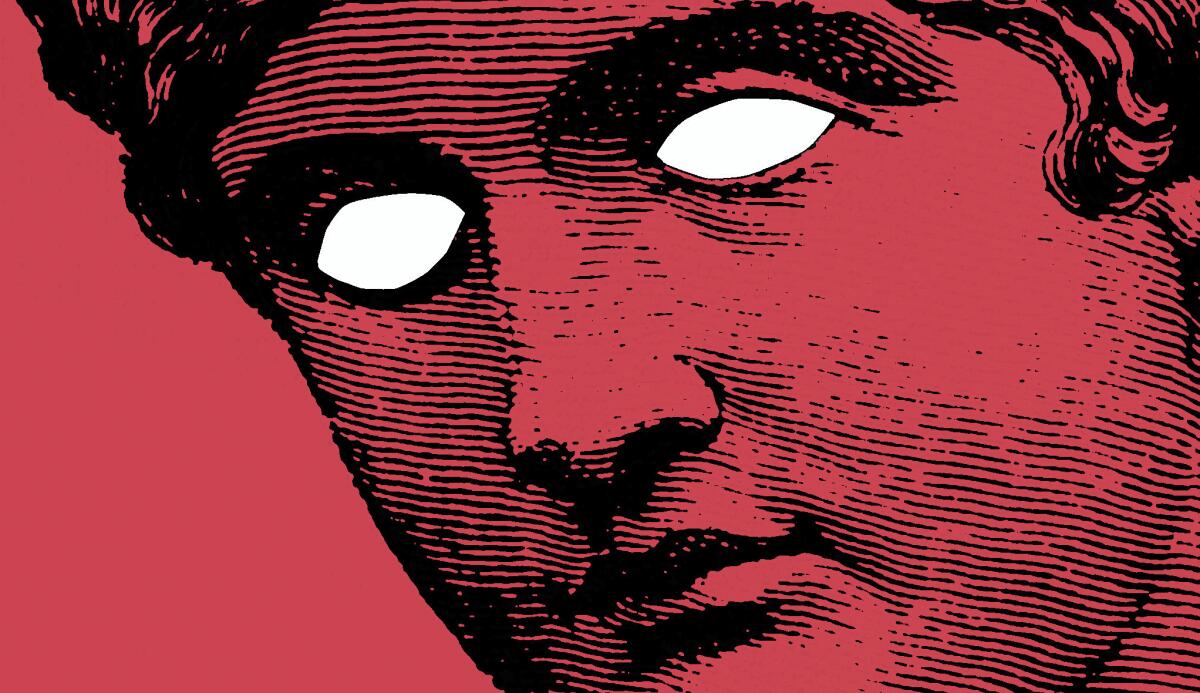Op-Ed: Greece-EU standoff: Echoes of ‘Antigone’

- Share via
The frantic negotiating to resolve Greece’s debt crisis before Sunday’s deadline is a race that launched a thousand cliches. We’re told that the Greeks have embarked on a new odyssey in uncharted waters, that as the EU tightens the screws, Angela Merkel and Francois Hollande have left the door open and that the world is holding its breath, though the economic details are Greek to us.
And, of course, countless headlines insist we’re watching a Greek tragedy unfold. It’s hard to blame the editors and columnists: After all, tragedy goes hand in hand with Greece, just like ouzo and “Mamma Mia!” The ancient Greek understanding of the term, although it has little to do with today’s cliches, in fact casts a bright Mediterranean light on the current crisis.
For the ancient Athenians, theater — the stage for tragedy (and comedy) — was not merely an excuse for distraction. It was also an exercise in democracy. The citizens of Athens subsidized plays in times of peace (which were rare) and times of war (which were plentiful). Held during massive festivals that honored the gods, theater was primarily a civic activity. The playwright Sophocles would have recognized the high stakes involved in the showdown between Greece and the European Union. In his play “Antigone,” he plumbed the divisions that plagued Athenian politics. The tragic political and moral dilemmas set in the mythical city of Thebes mirror those that confronted the citizens of Athens as they built their democracy.
Creon, the king of Thebes, finds himself responsible for the well-being of a city torn by fraternal fury. At the same time, his niece Antigone finds herself duty-bound to her dead brother, Polyneices, who led the rebellion against Thebes. At Creon’s order, Polyneices lies unburied. When Antigone ignores her uncle’s command and buries her brother, Creon locks her up in a cave and, before you know it, we have a big, fat Greek tragedy on our hands.
In today’s Greek crisis, brothers are not cutting one another’s throats at the EU headquarters in Brussels, nor are prisoners being immured in its basement. But the absence of human blood does not mean the absence of pain, misery and human passion, all of which are pushing the Greeks and the EU leaders into a war of words, if not weapons.
Nor are the key players blood relatives, but their bonds are almost as inescapable. When Greek politicians respond to German demands by reminding the world of Nazi atrocities, when the French economist Thomas Piketty observes that the Germans have conveniently forgotten how their own crippling postwar debt was restructured by the Allies, and when the German tabloid Das Bild photoshops Otto von Bismarck’s pointy helmet onto Angela Merkel’s head, we realize that the Furies — those subterranean gods who avenge the spilling of family blood in Greek storytelling — are very much alive and well.
All of this, the news media relentlessly reminds us, is tragic. But not, as our pundits seem to believe, because there is sorrow and suffering, conflict and clashes. That’s regrettable, but it isn’t necessarily tragic. Instead, as the ancient Greeks understood — and as we, steeped in our good guy/bad guy ethos, tend not to — that tragedy happens when two forces, each with equally powerful and just claims, collide.
That was the case in Thebes. Both Creon and Antigone acted for reasons that, at first, were just. Yet both, afflicted by hubris, forgot their original motives. Creon confused his city’s needs with his own desires, and Antigone transformed her love for her brother into love of pointless self-sacrifice and death. Neither could listen to the other, to the warnings and wisdom of the Greek chorus or indeed to their own better selves.
What if we were to place German Chancellor Merkel not in Bismarck’s uniform but instead in Creon’s role? She and the other European leaders cannot evade their duty toward their respective electorates, which loathe the idea of picking up the tab for an expensive Greek haircut. Creon shares their fear of “moral hazard”: If his rebellious nephew were to be buried, or later, if his burial by Antigone were to go unpunished, worrisome precedents would be set.
At the same time, Greece’s prime minister, Alexis Tsipras, like Antigone, places the obligation to his fellow Greeks above that to previous debt agreements. What weight can the debt deals have when, after so many years of austerity, life in Greece has worsened rather than improved?
Both sides have allowed the righteousness of their initial positions to slide into self-righteousness. The EU leaders, deaf to a chorus of economists and determined to punish transgressors, are Creon-like in their certainty. Increasingly, the Greek government seems less interested in a solution than in moral grandstanding, a la Antigone, regardless of the cost to themselves and others.
Ultimately, both sides are fired by unwavering devotion to an abstract ideal, the real costs be damned. But if ancient tragedy has any lesson to offer, it is that an all too real tragedy in the making might be avoided by putting responsibility before blind ideology, asking not whether the end justifies the means but whether the means justify the end.
“Wonders are many, and none is more wonderful than man,” says the chorus in “Antigone.” Will we applaud or lament man-made wonders at this week’s end?
Robert Zaretsky teaches world cultures and literatures at the University of Houston. His latest book is “Boswell’s Enlightenment.”
Follow the Opinion section on Twitter @latimesopinion and Facebook
More to Read
A cure for the common opinion
Get thought-provoking perspectives with our weekly newsletter.
You may occasionally receive promotional content from the Los Angeles Times.






